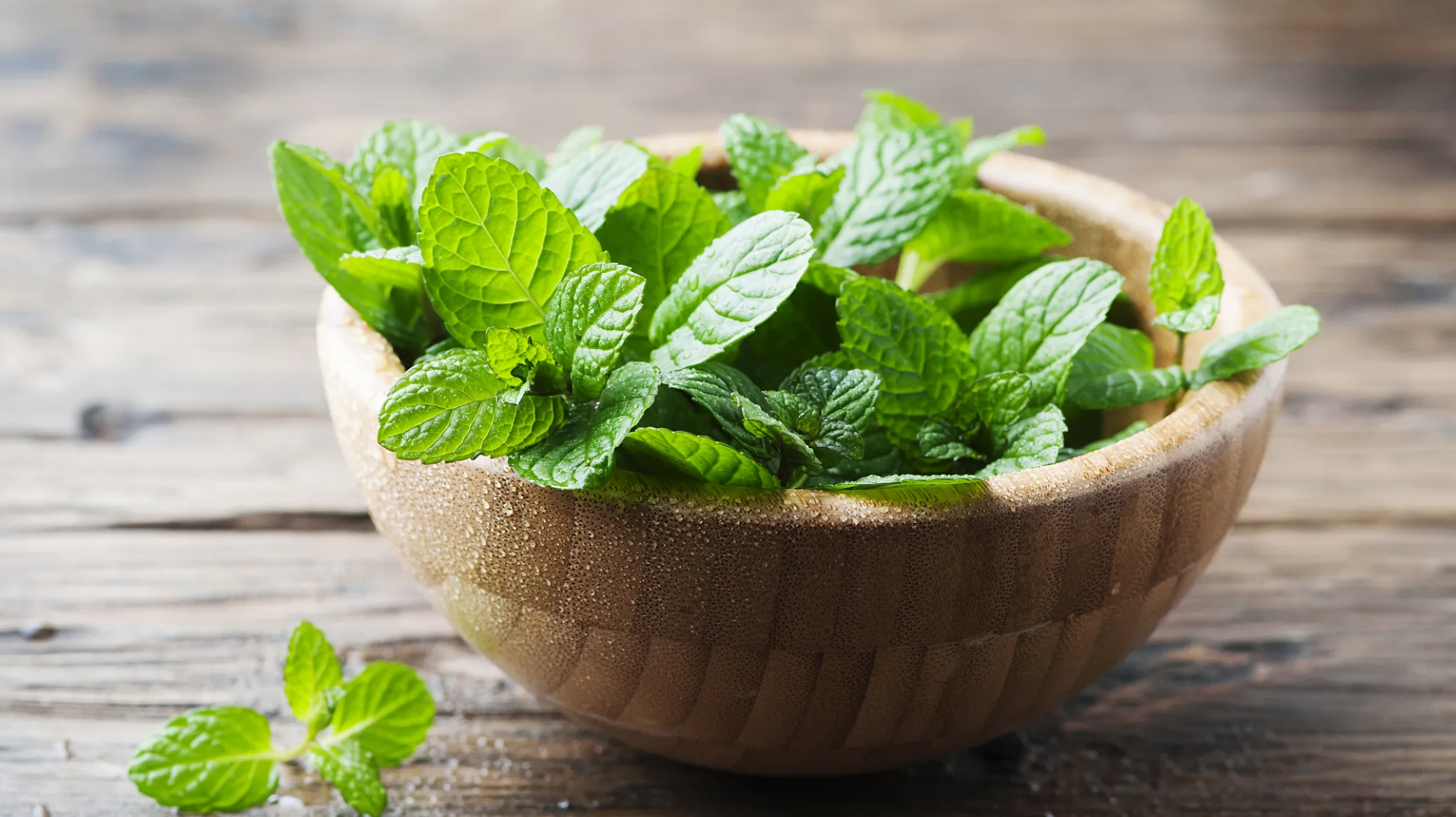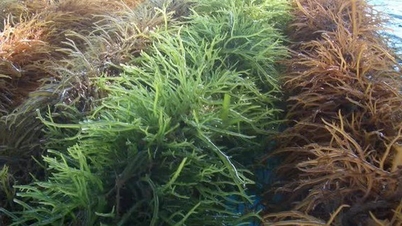Not only a spice, mint leaves are also a medicinal herb that can treat indigestion, fight colds and improve symptoms of irritable bowel syndrome... However, if used incorrectly or abused, it can cause some harmful effects.
Effects of mint
According to the website of Vinmec International General Hospital, mint is not only used as a raw vegetable and a spice for some dishes, but it is also popular and widely used in the food processing and cosmetics industry. In addition, mint leaves are also a medicinal herb that can treat indigestion, prevent colds and improve the symptoms of irritable bowel syndrome... However, if used incorrectly or abused, it can cause some harmful effects.
Mint is also known by other names such as: Ice monkey captain, spearmint, money grass, or mint to and has the scientific name Mentha arvensis Lin, belonging to the Lamiaceae family, is a perennial herbaceous plant, with square, spongy stems and branches and upright or sometimes creeping on the ground. The tallest plant can be 50 - 60 cm long.
Mint leaves grow opposite each other, are oval in shape, pointed at the tip and have serrated edges. When brought to the nose, mint leaves often have a fragrant, spicy and slightly numbing taste.
Mint leaves can be used in cooking or as tea in fresh or dried form. Peppermint essential oil can be used for topical application or in the food processing industry, cosmetics, toothpastes, etc. Peppermint can also be produced in the form of enteric-coated capsules for oral use.

Mint leaves are very good for health but if used incorrectly or abused they can cause some harm.
Mint is a herb considered a natural remedy that brings many benefits to the user's health such as:
Treating indigestion: The active ingredients in mint have the ability to soothe the abdominal muscles and increase the flow of bile. This helps food to be digested faster, improving symptoms of indigestion. How to use: Take 10g of mint leaves, wash, crush and steep with 500ml of boiling water, then divide into several times to drink during the day.
Soothes irritation and reduces skin rashes: Essential oil extracted from peppermint leaves is used to soothe skin irritation and relieve itchy rashes on the skin. However, you should dilute it with some other essential oils before applying it to the skin. Before applying it on a large area, apply a little essential oil on your wrist to check if you are allergic to peppermint essential oil before using it on a large area.
Treating colds and flu: Mint leaves help shrink swollen membranes in the nose, helping to improve symptoms of nasal congestion and difficulty breathing caused by colds or flu. In addition, menthol in mint leaves also helps fight bacteria and loosen mucus in the lungs, helping to reduce coughs.
How to do: Take 20g of whole mint with 30g of lemon leaves, bamboo leaves, grapefruit leaves, lemongrass, basil, and chrysanthemum each and 3 crushed garlic cloves, put them in a pot to boil water for steaming.
Treating irritable bowel syndrome (IBS): Some studies show that peppermint provides similar benefits to an antispasmodic drug commonly used in the treatment of irritable bowel syndrome. Use can help reduce signs of irritable bowel syndrome such as: Abdominal pain, bloating, diarrhea...
Preventing stomach ulcers: According to research, the active ingredient menthol extracted from mint leaves has the ability to help protect the stomach lining from the harmful effects of indomethacin and ethanol. Therefore, mint has the ability to prevent stomach ulcers.
Protecting oral health: One of the effects of mint leaves is to protect oral health. Thanks to its antifungal and antibacterial properties, mint leaves can be useful for people with tooth decay, bad breath and gum infections... Therefore, mint essential oil is also used in many toothpastes to help prevent bad breath and tooth decay.
Reduce stress and headaches: Some studies show that mint leaves also have pain-relieving effects. Peppermint essential oil reduces stress-induced headaches when applied to the forehead and combined with massage.
Promotes Wound Healing: The essential oil in peppermint leaves has been shown to be effective against certain strains of bacteria. Additionally, it helps stimulate the growth of fibroblasts, promoting rapid wound healing.
Enhance immunity: With antibacterial, antifungal and antiviral properties, mint helps enhance the body's immune system, increasing resistance to pathogens.
Notes when using mint
Although the effects of mint leaves are very useful, this medicine cannot be used in all cases. Mint should not be used for children, diabetics, pregnant women, gastroesophageal reflux, fever due to yin deficiency, weakness, constipation, high blood pressure, and cardiovascular disease.
Applying pure peppermint essential oil to the skin can cause irritation, so it should be diluted with a carrier oil (coconut oil, olive oil) before use, especially when applying to the face.
Do not use peppermint oil on broken or scratched skin and be careful to avoid contact with eyes. Do not apply or inhale peppermint oil more than 3-4 times a day to avoid the risk of skin congestion and dry respiratory mucosa. Stop using peppermint and peppermint products when symptoms have improved, do not use continuously for a long time.
Peppermint can interact with some medications, vitamins, or other herbs. Therefore, if you intend to use peppermint for a long time, you should consult a medical specialist.
Source: https://danviet.vn/loai-la-duoc-vi-nhu-than-duoc-chua-benh-cam-cum-kho-tieu-nhung-neu-dung-sai-cach-thi-tac-hai-nhu-the-nao-20250203191418912.htm







![[Photo] Urgently help people soon have a place to live and stabilize their lives](/_next/image?url=https%3A%2F%2Fvphoto.vietnam.vn%2Fthumb%2F1200x675%2Fvietnam%2Fresource%2FIMAGE%2F2025%2F12%2F09%2F1765248230297_c-jpg.webp&w=3840&q=75)






























































![[Photo] General Secretary To Lam works with the Standing Committees of the 14th Party Congress Subcommittees](https://vphoto.vietnam.vn/thumb/402x226/vietnam/resource/IMAGE/2025/12/09/1765265023554_image.jpeg)

































Comment (0)